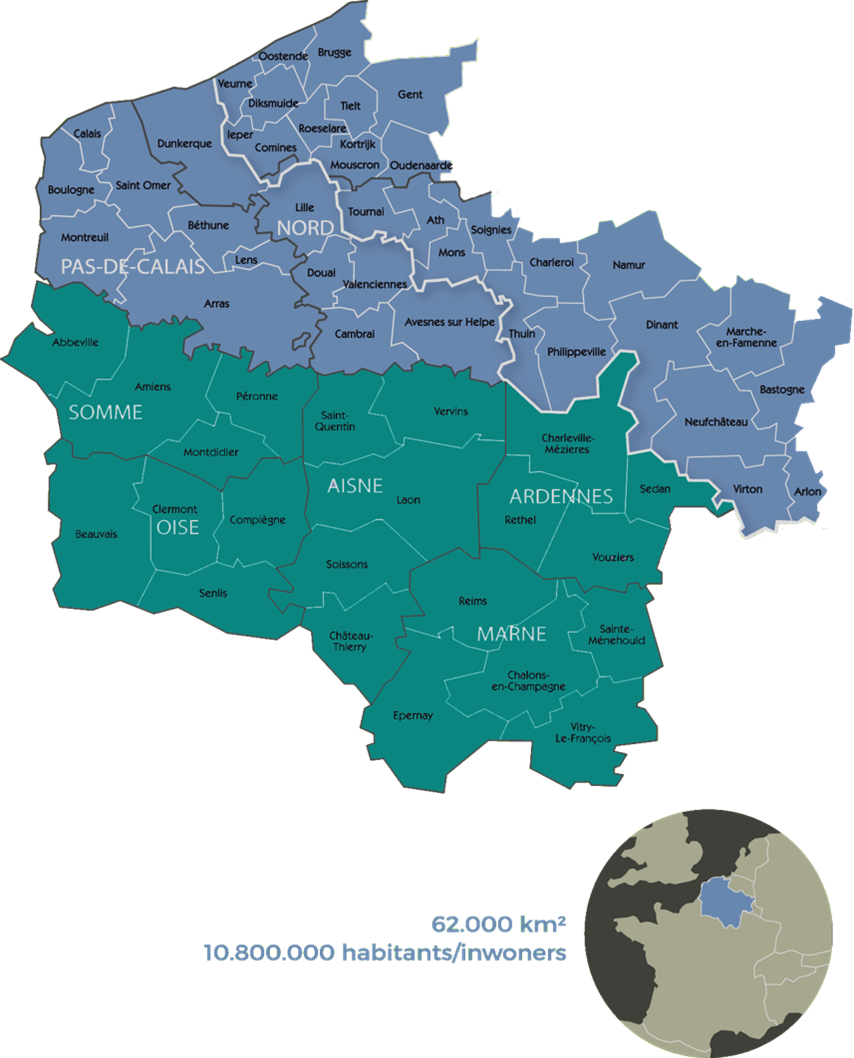What?
Pollinators (butterflies, wild bees, hoverflies) are essential for maintaining agriculture and ecosystems and therefore for economic activity and the well-being of the inhabitants of the territory. Belgium and the north of France share a common pollinating fauna, which is not constrained by national borders. The decline of pollinators in Europe and in the cross-border area is a major ecological issue which has already been addressed by isolated initiatives on both sides of the border.
However, there are no or few concrete and large-scale actions for the conservation of wild pollinators in the area. The SAPOLL project will ensure the implementation of coherent and coordinated protection and conservation programs throughout the cross-border area, while being adapted to regional specificities.
The project aims to:
- raise awareness among the public
- mobilize networks of observers
- provide scientific monitoring of wild pollinators throughout the cross-border territory
Where?
The cross-border area covers three regions: Wallonia (BE), Flanders (BE), and northern France (Haut-de-France region and 2 departments of the Grand-Est region).

Source: http://sapoll.eu/sapoll/la-zone-transfrontaliere/
How?
The project started in April 2016 as part of the Interreg Programme France-Wallonie-Vlaanderen 2014-2020. It is financed with an ERDF contribution of 1.2 million EUR, and brings together four French and four Belgian partners from different backgrounds, led by the University of Mons (BE). In addition, more than 10 associated partners have also taken part in project activities.
Results?
The most outstanding result of the initiative is the SAPOLL Transboundary Action Plan, which constitutes the cornerstone of the project. The document aims to represent a catalyst for future actions and innovations for the next 10 years (2019-2029) through 35 actions dedicated to improving and sharing knowledge, raising awareness and promoting pollinators through concrete actions.
The project carried out more than 250 awareness actions, reaching more than 45,000 people. In addition, more than 1,000 families in the project area have already registered their gardens in the network of refuges for the protection of pollinators. Three new pollinators and wild bees working groups have been created to bring together naturalists, and pollinator courses have been attended by more than 600 people, including volunteers and professionals.
Several publications on pollinators have been produced in both languages, from raising awareness documents (posters, brochures, practical sheets, etc.) to guides for beginners, as well as naturalists and scientific publications (scientific articles, atlas, etc.). A cross-border database has been created and the consortium is bound by an agreement between the members of the project. This has already enabled the collection of more than 1,000,000 pieces of data on pollinators in Belgium and in the north of France. Finally, more than 580 new sites were sampled, thus improving our knowledge of pollinators in the cross-border area.
More information: http://sapoll.eu/
- Kirjaudu sisään, jotta voit julkaista kommentteja
- Tunnisteet
- green deal education

